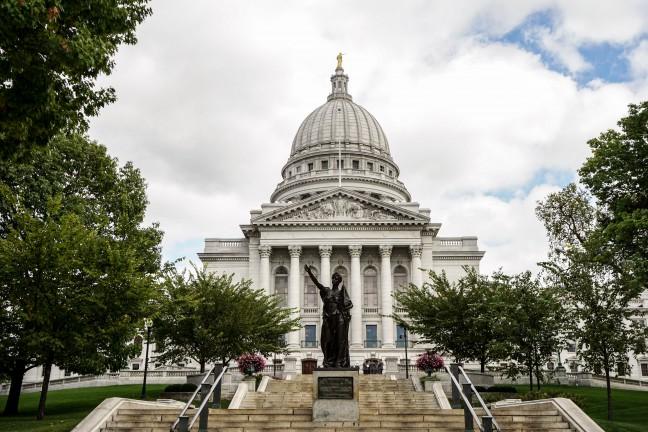The state’s Public Records Board Monday unanimously reversed a decision made last summer that changed the definition of “transitory records” and sparked public backlash.
Transitory records are short-term records that do not need to be archived and can be deleted, Board Chair Matthew Blessing said at the meeting.
The board revisited the Aug. 24 decision that broadened the definition of transitory records, and seemed to allow politicians to deny records requests for text messages. In light of public concern, the Public Records Board unanimously reverted back to an older definition of transitory records, approved in 2010.
In 2010, transitory records were defined as, “correspondence and other related records of short term interest which do not have documentary or evidentiary value.”
Blessing said the 2010 definition was “vague and used professional jargon.” The board concluded that the 2010 definition will be revised in the future.
Almost 1,900 written comments were sent to the Public Records Board from citizens concerned with the August decision and its impact on open government.
One day after the Aug. 24 decision, Gov. Scott Walker denied the Wisconsin State Journal’s request to collect text messages because text messages were considered “transitory.”
At the meeting, board member Carl Buesing denied accusations that the records board was collaborating with politicians to allow them to deny records requests, stating politicians’ recent actions have “nothing to do with what we do on the public records board.” He specifically mentioned Assembly Speaker Robin Vos, R- Rochester, who tried to change the open records law in July.
“The last conversation I had with a governor, I think, was with Warren Knowles when I was in junior high,” Buesing said. “I’ve not been asked to carry the water for Robin Vos.”
The descriptions of transitory records were never meant to exempt text messages or any other types of messages from open records, Blessing said.
Text messages or any other type of formatting were never mentioned, because the definition of transitory is based on the substance of the message, not the format, he added.
Blessing said the Public Records Board is committed to upholding transparency in records collection because records serve to hold government officials accountable.
“Good record keeping is a central component of good government and accountable government,” Blessing said. “So too is citizen engagement, and I appreciate the public’s interest in this matter, and in improving existing systems.”
James Friedman, Godfrey & Kahn attorney and spokesperson for both Wisconsin Newspaper Association and Wisconsin Broadcasters Association, said even if the Public Record Board’s intentions were good, their actions in August led to abuse of the law by public officials.
“While we do not question your intentions, the consequences of those actions, as we’ve heard, have already been disastrous for open government in Wisconsin,” Friedman said.
Even small details of information that seem to be of trivial importance can make the difference in the narrative of a news story, or a lawsuit, Friedman added.
Andrew Johnson, publisher of Dodge County Pioneer local newspaper, said having access to all kinds of records — even those that seem transitory — is important for government transparency.
“Never in our state’s, as well as in our country’s history, has the idea of open government and open government record been more important than right now. The people cannot trust a government that they do not know about,” Johnson said. “All official records and government correspondence, including transitory records, should be clearly and freely available to the people, whether electronic or print form.”














